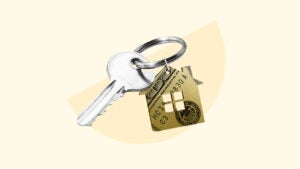Hidden costs of buying a home

If you’re planning to buy a new home soon, you’ve likely given some thought to the maximum price you can pay and the down payment you can offer. And if you plan to finance the purchase, the monthly mortgage payment could also be on the list of important expenses you’ve already started accounting for.
In terms of immediate expenses, those are certainly the big three. But the path to homeownership is strewn with other, “hidden” costs that most people forget about or are unprepared for, especially if they’re first-time buyers. Here’s a checklist of the most common; be sure to budget for them, to avoid any surprises once the contract is signed and the countdown to closing has begun. And, as a bonus, a few things to allow for once you move into your new home.
Closing Costs
Closing costs must be paid before you take legal possession of the home. A variety of fees for separate services (loan origination, underwriting, title search, deed recording, etc.), these expenses primarily relate to obtaining a mortgage, though some help verify the home’s ownership, condition and value. While they vary greatly by state, closing costs generally amount to between 2 and 5 percent of the mortgage amount. To illustrate, if you borrow $420,000 to purchase a home, your closing costs could range from $8,400 to $21,000.
Home appraisal and inspection
You’re not required to have a professional home inspection done before your purchase closes. However, it could be well worth the expense, especially if there are issues with the property that aren’t obvious and require a closer look to identify. On average, potential buyers pay roughly $339 for home inspections, according to the contractor-search service Angi. However, this rate can and does vary by the location, age and size of the home.
Earnest money
If you put an offer on a home and it’s accepted by the seller, you’ll need to follow it up with earnest money within one or two days. It’s a good-faith deposit demonstrating your intention to abide by the sale agreement and ultimately purchase the property. There’s no law mandating earnest money be put down on a prospective home purchase, but at least 1 percent of the purchase price is standard. In some instances, prospective buyers offer to make even larger deposits to win over sellers.
Escrow
Escrow accounts serve two purposes: holding earnest money and remitting payments for property taxes and homeowners insurance. The earnest money is applied to the purchase price at closing. But if there’s an issue with the home, as revealed in the inspection, the funds will be refunded to you.
Once you close on your home, you may also opt or be required to fund a mortgage escrow account, which holds funds from your mortgage payment that are reserved for future property tax and homeowners insurance bills. When the bills become due, the mortgage company will pay them from this account on your behalf.
Title fees
Title insurance may not be mandatory, though most mortgage lenders do require you purchase it. This coverage protects the homebuyer and lender from potential issues with the property’s deed once you assume ownership. Otherwise, you’ll be responsible for covering any legal expenses if the house has liens or other sorts of serious encumbrances against it — what’s called a “cloudy” or “unclear title.” Expect to pay a few hundred dollars for title insurance.
Transfer taxes
Also known as deed transfer tax, real estate transfer tax is assessed when real property changes hands. The fee is determined by the state or municipality where the property is located, and it’s usually a percentage of the home’s sale price.
Moving costs and fees
Okay, the closing has occurred. Congratulations, homeowner! Now, though, you’ll incur moving expenses — and if you’re smart, you’ll have started toting those up ahead of time, as soon as you signed the purchase agreement, in fact. On average, within a range of $868 and $2,383, you’ll spend $1,624 to hire professional movers, according to HomeAdvisor. That’s for a local move. A long-distance trek averages $6,060 if you move across the country, notes Fixr.
New furnishings
Yes, we know you’re going to reuse everything you have and raid your parents’ attic for more — but it’s equally important to factor in the cost of furniture, especially if you’re upgrading to a bigger home or moving from an apartment to a house. And then there are new fixtures, like window treatments and ceiling fans. The average homeowner spends $16,000, HomeAdvisor reports.
Ongoing property taxes and HOA fees
OK, so much for the new-home stuff. Now, let’s get into ongoing homeownership costs.
First up: property taxes imposed by your county or city. You can either pay property taxes on your own or have them escrowed into your monthly mortgage payments. Either way, you have to figure them into your budget.
HOA fees are another story: You’ll need to pay them directly to the homeowner’s association monthly, quarterly, semi-annually or annually. They typically cover the costs associated with garbage collection, shared utilities, security and landscaping.
Home maintenance and repairs
It’s easy to overlook outlays for home maintenance and repairs. But trust us: They’re going to happen, and if you’re used to apartment life, some of them — like repairing the roof, cleaning gutters, heating costs and lawn mowing — might not occur immediately. And some can get rather costly, particularly if they are repairs related to extreme weather conditions, a natural disaster or a major issue that causes significant damage to your property. You might also figure the premiums for homeowners insurance into this category.
Emergency fund
Most experts recommend having at least three to six months of core household expenses in an emergency fund. If you don’t have this amount of reserves on hand before buying a home, focus on building up your cushion sooner rather than later to avoid the risk of foreclosure if life happens and your income is suddenly reduced.
Adequate cash reserves can also come in handy if you need to cover the cost of unexpected repairs that your insurance won’t cover, or that is insufficient to meet the policy deductible.
Bottom line on hidden home costs
Buying a home is an exciting time. It also involves one of the largest purchases you’ll probably make. So, you should familiarize yourself with hidden — or, perhaps we should say, less-than-obvious — costs that often catch many homeowners by surprise. And that can cause them to become house poor: a perilous financial position in which you can cover the costs of the home, but little else.
To avoid that fate, start building your bank account to be ready for these costs, and ensure your finances are in good shape before purchasing a home. That way, you can shop with confidence and be prepared to handle the financial responsibilities that, along with the joys, come with homeownership.
Why we ask for feedback Your feedback helps us improve our content and services. It takes less than a minute to complete.
Your responses are anonymous and will only be used for improving our website.






